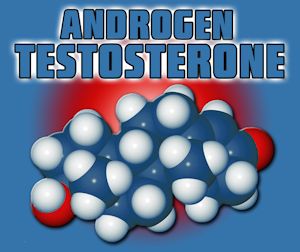Introduction to Testosterone Deficiency Syndrome
Testosterone Deficiency Syndrome (TDS), also known as hypogonadism, is a clinical condition characterized by low levels of testosterone in men. This syndrome can lead to a variety of symptoms including decreased libido, fatigue, depression, and reduced muscle mass. In the United States, TDS is increasingly recognized as a significant health concern among American males, affecting their quality of life and overall well-being.
The Prevalence of Testosterone Deficiency in American Males
Recent studies have indicated that testosterone deficiency is more prevalent than previously thought, with estimates suggesting that up to 40% of men over the age of 45 may experience some degree of testosterone decline. This statistic underscores the importance of understanding and addressing TDS effectively within the American male population.
The Role of Vitamin D in Testosterone Production
Vitamin D, often referred to as the "sunshine vitamin," plays a crucial role in various physiological processes, including bone health, immune function, and mood regulation. Emerging research has begun to highlight its potential impact on testosterone levels. Vitamin D receptors are present in the testes, suggesting a direct link between vitamin D and testosterone synthesis.
Clinical Evidence Linking Vitamin D to Testosterone Levels
Several clinical studies have demonstrated a positive correlation between vitamin D levels and testosterone concentrations. A study published in the journal *Hormone and Metabolic Research* found that men with sufficient vitamin D levels had higher testosterone levels compared to those with a deficiency. Another study in the *European Journal of Endocrinology* reported that vitamin D supplementation in men with low testosterone levels resulted in a significant increase in testosterone.
Mechanisms of Action: How Vitamin D Influences Testosterone
The exact mechanisms by which vitamin D influences testosterone production are still under investigation. However, it is believed that vitamin D may enhance the expression of enzymes involved in testosterone synthesis. Additionally, vitamin D may reduce the activity of sex hormone-binding globulin (SHBG), a protein that binds testosterone and makes it less available for use by the body.
Vitamin D Deficiency and Its Implications for American Males
Vitamin D deficiency is a common issue among American males, particularly those with limited sun exposure or dietary intake of vitamin D-rich foods. This deficiency can exacerbate the symptoms of TDS, making it a critical factor to consider in the management of low testosterone levels.
Strategies for Optimizing Vitamin D Levels
To optimize vitamin D levels and potentially improve testosterone production, American males should consider the following strategies:
1. **Sun Exposure**: Regular, moderate exposure to sunlight can help the body produce vitamin D naturally. Aim for about 15-30 minutes of sun exposure several times a week.
2. **Dietary Sources**: Incorporate vitamin D-rich foods into your diet, such as fatty fish (salmon, mackerel), fortified dairy products, and egg yolks.
3. **Supplementation**: For those unable to achieve adequate vitamin D levels through sun exposure and diet, supplements may be necessary. It is advisable to consult with a healthcare provider to determine the appropriate dosage.
The Importance of Regular Monitoring
Regular monitoring of both vitamin D and testosterone levels is essential for men managing TDS. Blood tests can help healthcare providers assess the effectiveness of interventions and make necessary adjustments to treatment plans.
Conclusion: A Holistic Approach to Managing Testosterone Deficiency
In conclusion, the relationship between vitamin D and testosterone offers a promising avenue for managing Testosterone Deficiency Syndrome in American males. By addressing vitamin D deficiency and optimizing levels through a combination of sun exposure, dietary adjustments, and supplementation, men can potentially improve their testosterone levels and alleviate the symptoms of TDS. A holistic approach, incorporating regular monitoring and consultation with healthcare professionals, is key to achieving optimal health outcomes.
Contact Us Today For A Free Consultation

- Understanding Testosterone Deficiency: Symptoms, Diagnosis, and Management in American Men [Last Updated On: February 20th, 2025] [Originally Added On: February 20th, 2025]
- Stress-Induced Testosterone Decline in American Males: Causes and Management Strategies [Last Updated On: March 16th, 2025] [Originally Added On: March 16th, 2025]
- Testosterone Deficiency Syndrome: Hormone Therapy Benefits and Holistic Management for American Males [Last Updated On: March 19th, 2025] [Originally Added On: March 19th, 2025]
- Testosterone Deficiency in American Men: Symptoms, Diagnosis, and Energy-Boosting Treatments [Last Updated On: March 20th, 2025] [Originally Added On: March 20th, 2025]
- Testosterone Deficiency in American Men: Impacts on Mood and Mental Health [Last Updated On: March 20th, 2025] [Originally Added On: March 20th, 2025]
- Testosterone Deficiency Syndrome: Impact, Diagnosis, and Management in Aging American Men [Last Updated On: March 20th, 2025] [Originally Added On: March 20th, 2025]
- Environmental Toxins Linked to Rising Testosterone Deficiency in U.S. Males [Last Updated On: March 20th, 2025] [Originally Added On: March 20th, 2025]
- Testosterone Deficiency in American Men: Impacts on Muscle Mass and Treatment Strategies [Last Updated On: March 20th, 2025] [Originally Added On: March 20th, 2025]
- Testosterone Deficiency Syndrome: Impacts on Prostate Health and Management Strategies [Last Updated On: March 21st, 2025] [Originally Added On: March 21st, 2025]
- Testosterone Deficiency Syndrome: Importance of Regular Monitoring and Management in American Men [Last Updated On: March 21st, 2025] [Originally Added On: March 21st, 2025]
- Smoking's Impact on Testosterone Levels and TDS Risk in American Males [Last Updated On: March 21st, 2025] [Originally Added On: March 21st, 2025]
- Chronic Illnesses and Their Impact on Testosterone Deficiency in American Males [Last Updated On: March 22nd, 2025] [Originally Added On: March 22nd, 2025]
- Alcohol's Impact on Testosterone and Risk of TDS in American Males [Last Updated On: March 22nd, 2025] [Originally Added On: March 22nd, 2025]
- Zinc's Vital Role in Combating Testosterone Deficiency in American Men [Last Updated On: March 22nd, 2025] [Originally Added On: March 22nd, 2025]
- Magnesium's Role in Managing Testosterone Deficiency Syndrome in American Males [Last Updated On: March 22nd, 2025] [Originally Added On: March 22nd, 2025]
- Testosterone Deficiency Syndrome: Understanding Its Impact on Hair Loss in Men [Last Updated On: March 23rd, 2025] [Originally Added On: March 23rd, 2025]
- Testosterone Deficiency Syndrome: Impacts on Immune Function in American Men [Last Updated On: March 23rd, 2025] [Originally Added On: March 23rd, 2025]
- Testosterone Deficiency and Cognitive Decline in American Men: Impacts and Interventions [Last Updated On: March 23rd, 2025] [Originally Added On: March 23rd, 2025]
- Testosterone Deficiency Impacts Muscle, Fat, and Bone Health in American Males [Last Updated On: March 23rd, 2025] [Originally Added On: March 23rd, 2025]
- Testosterone Deficiency in American Men: Impacts on Libido and Holistic Management [Last Updated On: March 23rd, 2025] [Originally Added On: March 23rd, 2025]
- Omega-3 Fatty Acids: A Promising Approach to Managing Testosterone Deficiency in Men [Last Updated On: March 23rd, 2025] [Originally Added On: March 23rd, 2025]
- Soy Consumption and Testosterone Levels in American Men with TDS: A Comprehensive Review [Last Updated On: March 23rd, 2025] [Originally Added On: March 23rd, 2025]
- Testosterone Deficiency and Depression: Exploring the Link in American Men [Last Updated On: March 23rd, 2025] [Originally Added On: March 23rd, 2025]
- Ashwagandha: A Natural Remedy for Testosterone Deficiency in American Males [Last Updated On: March 24th, 2025] [Originally Added On: March 24th, 2025]
- Shift Work's Impact on Testosterone Levels in American Males: A Growing Concern [Last Updated On: March 24th, 2025] [Originally Added On: March 24th, 2025]
- Testosterone Deficiency Syndrome: Impacts on Skin Health and Management Strategies [Last Updated On: March 24th, 2025] [Originally Added On: March 24th, 2025]
- Blue Light Exposure Linked to Testosterone Deficiency in American Men: Mitigation Strategies [Last Updated On: March 24th, 2025] [Originally Added On: March 24th, 2025]
- Testosterone Deficiency and Sleep Apnea: A Bidirectional Health Concern for American Males [Last Updated On: March 25th, 2025] [Originally Added On: March 25th, 2025]
- Testosterone Deficiency and Anemia: Understanding Links and Managing Health in American Males [Last Updated On: March 25th, 2025] [Originally Added On: March 25th, 2025]
- Weight Training Boosts Testosterone: A Solution for American Men with TDS [Last Updated On: March 25th, 2025] [Originally Added On: March 25th, 2025]
- Testosterone Deficiency and Joint Health in American Males: Impacts and Management Strategies [Last Updated On: March 25th, 2025] [Originally Added On: March 25th, 2025]
- Testosterone Deficiency in American Male Athletes: Symptoms, Impact, and Management Strategies [Last Updated On: March 25th, 2025] [Originally Added On: March 25th, 2025]
- Testosterone Deficiency in American Men: Impacts on Dental Health and Management Strategies [Last Updated On: March 25th, 2025] [Originally Added On: March 25th, 2025]
- Air Pollution's Impact on Testosterone Levels and TDS in American Males [Last Updated On: March 26th, 2025] [Originally Added On: March 26th, 2025]
- Boron Supplementation: A Promising Approach to Managing Testosterone Deficiency in American Males [Last Updated On: March 26th, 2025] [Originally Added On: March 26th, 2025]
- Testosterone Deficiency Syndrome: Impacts on Vision Health in American Men [Last Updated On: March 26th, 2025] [Originally Added On: March 26th, 2025]
- Pesticide Exposure Linked to Testosterone Deficiency in American Men: Risks and Reduction Strategies [Last Updated On: March 26th, 2025] [Originally Added On: March 26th, 2025]
- Diet Soda Consumption Linked to Lower Testosterone Levels in American Men [Last Updated On: March 26th, 2025] [Originally Added On: March 26th, 2025]
- EMF Exposure and Testosterone Levels: Implications for TDS in American Males [Last Updated On: March 27th, 2025] [Originally Added On: March 27th, 2025]
- Chronic Stress and Testosterone Deficiency in American Males: Impacts and Management [Last Updated On: March 27th, 2025] [Originally Added On: March 27th, 2025]
- High-Fat Diets and Testosterone: Impacts and Dietary Strategies for American Males [Last Updated On: March 27th, 2025] [Originally Added On: March 27th, 2025]
- Testosterone Deficiency Syndrome: Impacts on Liver Health in American Males [Last Updated On: March 27th, 2025] [Originally Added On: March 27th, 2025]
- Testosterone Deficiency Linked to Pancreatic Health Issues in American Men [Last Updated On: March 27th, 2025] [Originally Added On: March 27th, 2025]
- Testosterone Deficiency Linked to Hearing Loss in American Males: Insights and Implications [Last Updated On: March 27th, 2025] [Originally Added On: March 27th, 2025]
- Testosterone Deficiency in American Males: Impacts on Memory and Cognitive Health [Last Updated On: March 27th, 2025] [Originally Added On: March 27th, 2025]
- Testosterone Deficiency Syndrome: Impacts on Kidney Function and Holistic Management Strategies [Last Updated On: March 28th, 2025] [Originally Added On: March 28th, 2025]
- Plasticizers Linked to Testosterone Deficiency in American Men: Emerging Research and Risks [Last Updated On: March 28th, 2025] [Originally Added On: March 28th, 2025]
- Testosterone Deficiency and Thyroid Health: Interconnections and Management Strategies [Last Updated On: March 29th, 2025] [Originally Added On: March 29th, 2025]
- Fenugreek: A Natural Solution for Testosterone Deficiency in American Males [Last Updated On: March 30th, 2025] [Originally Added On: March 30th, 2025]
- Testosterone Deficiency Linked to Increased Gallbladder Disease Risk in American Males [Last Updated On: March 31st, 2025] [Originally Added On: March 31st, 2025]
Word Count: 603





















